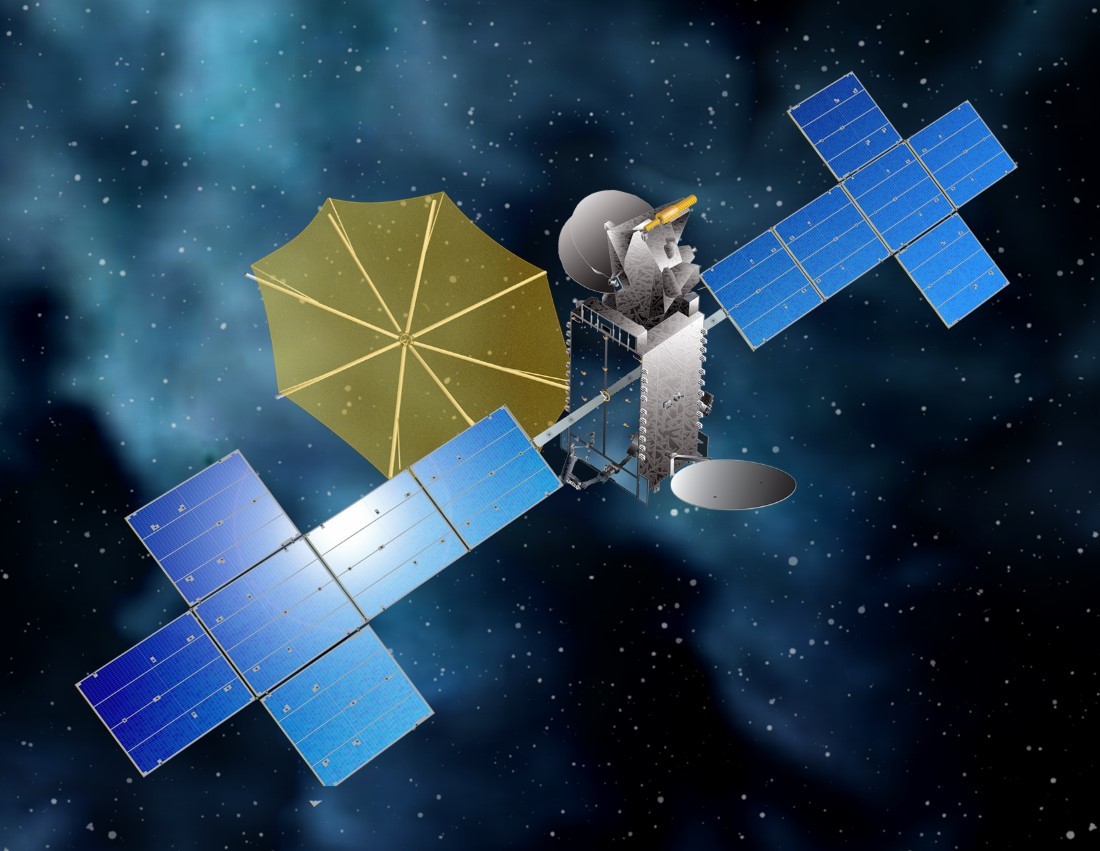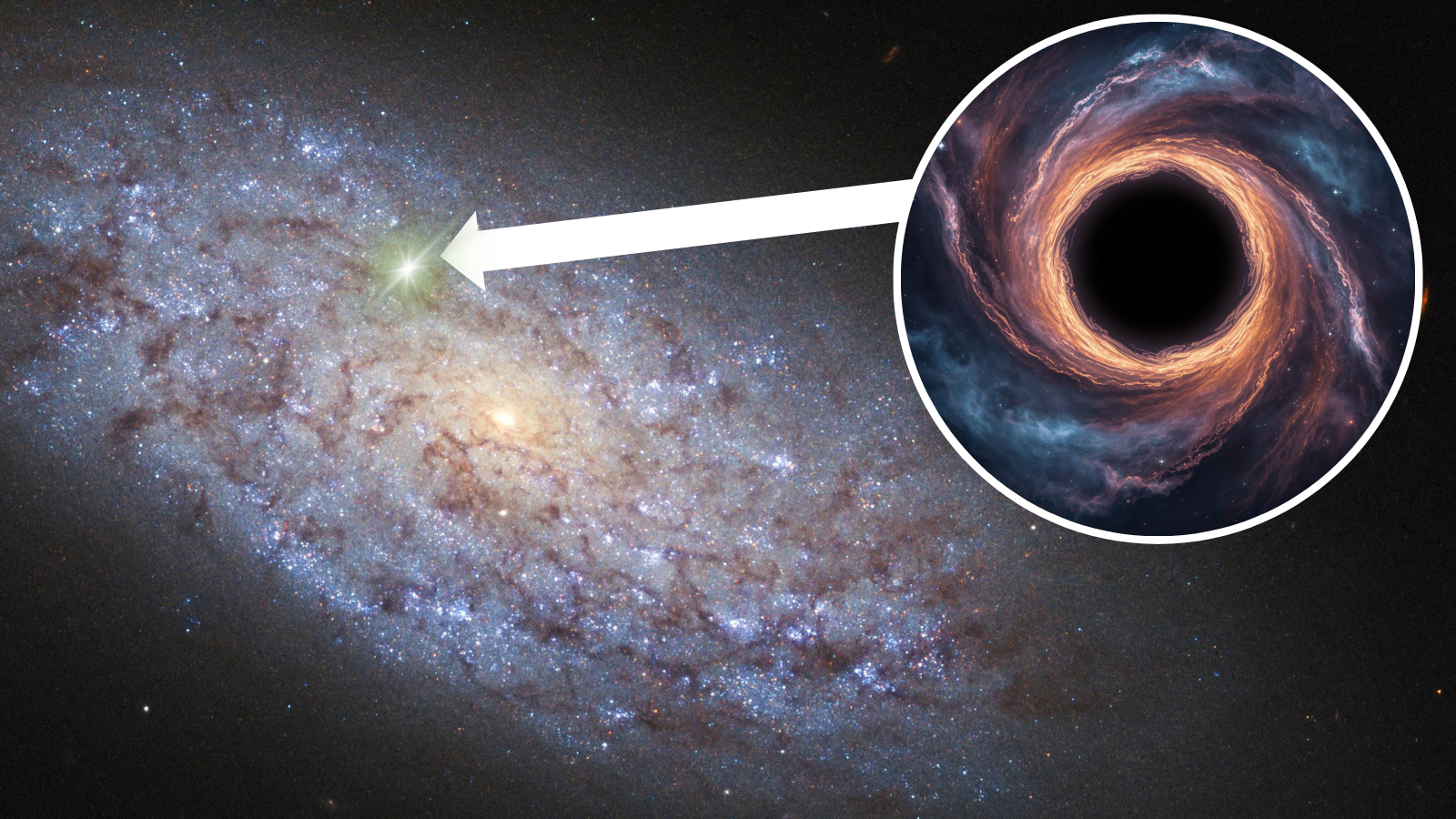Sirius XM's newest satellite, SXM-7, has failed in orbit
It launched into space Dec. 13 on a SpaceX rocket.

Breaking space news, the latest updates on rocket launches, skywatching events and more!
You are now subscribed
Your newsletter sign-up was successful
Want to add more newsletters?

Delivered daily
Daily Newsletter
Breaking space news, the latest updates on rocket launches, skywatching events and more!

Once a month
Watch This Space
Sign up to our monthly entertainment newsletter to keep up with all our coverage of the latest sci-fi and space movies, tv shows, games and books.

Once a week
Night Sky This Week
Discover this week's must-see night sky events, moon phases, and stunning astrophotos. Sign up for our skywatching newsletter and explore the universe with us!

Twice a month
Strange New Words
Space.com's Sci-Fi Reader's Club. Read a sci-fi short story every month and join a virtual community of fellow science fiction fans!
SiriusXM's newest satellite, SXM-7, has suffered undisclosed failures during in-orbit testing, the company revealed in a filing with the U.S. Securities and Exchange Commission on Wednesday (Jan. 27).
"During in-orbit testing of SXM-7, events occurred which have caused the failure of certain SXM-7 payload units. An evaluation of SXM-7 is underway. The full extent of the damage to SXM-7 is not yet known," Sirius XM said in the filing.
At this time, it's unclear if the satellite can be recovered.
The satellite, which was built by Maxar Technologies, launched on a Spacex Falcon 9 rocket on Dec. 13. The company has said the failure was unrelated to the launch vehicle and that a full evaluation of the satellite is underway.
Video: SpaceX launches powerful Sirius XM satellite into orbit
The SXM-7 satellite is based on Maxar Technologies' SSL-1300 satellite bus. Powered by two large solar arrays (and batteries for on-orbit storage), it was designed to operate in the S-band spectrum, between 2.32 GHz and 2.345 GHz. The 15,432-lb. (7,000 kilograms) satellite is part of a pair that Maxar built and SpaceX is launching for Sirius XM. The other, SXM-8, is still under construction and set to launch later this year.
Each satellite has an operational lifetime of 15 years, and was intended to replace two aging satellites already on orbit. The satellites are designed to support Sirius XM's digital radio service, providing coverage across the U.S., Canada, and the Caribbean.
Breaking space news, the latest updates on rocket launches, skywatching events and more!
SXM-7 began its in-orbit testing phase on Jan. 4, which is a normal shakedown phase before a satellite enters service. The testing typically lasts for a few months. The company has yet to determine what went wrong, but says it is in control of the satellite.
"We do not expect our satellite radio service to be impacted by these adverse SXM-7 events," Sirius XM said in its filing. "Our XM-3 and XM-4 satellites continue to operate and are expected to support our satellite radio service for several years."
While these two satellites were the ones Sirius was hoping to replace, they are healthy and are expected to continue to support the broadcasting service for many years to come. The company also said it has an orbital spare, SXM-5, which is standing by.
As is a common practice in the launch industry, Maxar Technologies transferred all liability to Sirius XM following launch. However, in a filing of its own, Maxar said it is assisting the broadcasting company in "troubleshooting and diagnosing the situation to evaluate the extent of the damage to the SXM-7 satellite."
According to Sirius XM, it purchased $225 million in aggregate insurance for the mission which covers the satellite from launch through its first year of operation.
"We have notified the underwriters of these policies of a potential claim with respect to SXM-7," Sirius XM wrote in its filing.
Follow Amy Thompson on Twitter @astrogingersnap. Follow us on Twitter @Spacedotcom or Facebook.

Amy Thompson is a Florida-based space and science journalist, who joined Space.com as a contributing writer in 2015. She's passionate about all things space and is a huge science and science-fiction geek. Star Wars is her favorite fandom, with that sassy little droid, R2D2 being her favorite. She studied science at the University of Florida, earning a degree in microbiology. Her work has also been published in Newsweek, VICE, Smithsonian, and many more. Now she chases rockets, writing about launches, commercial space, space station science, and everything in between.
